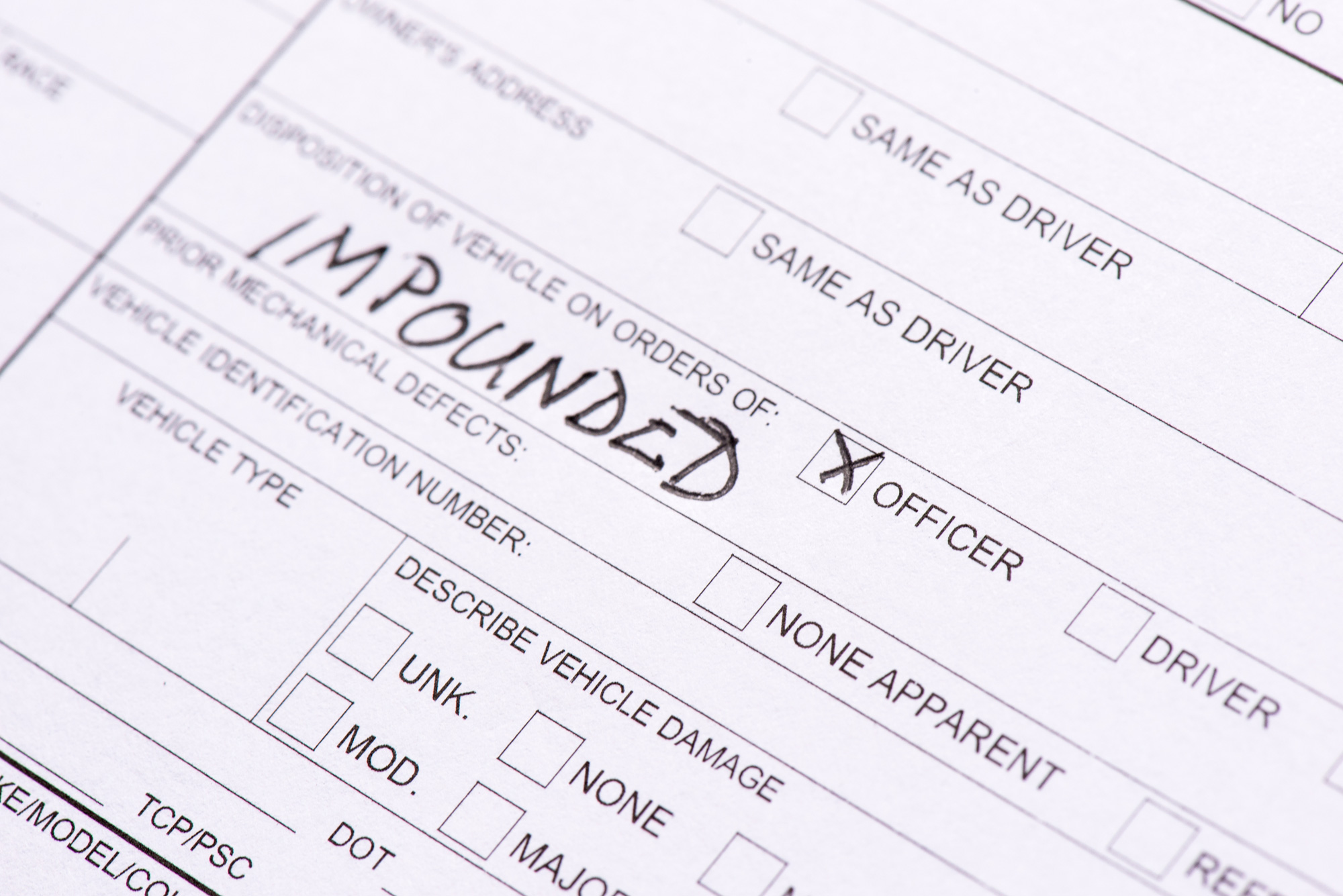Finding out your car has been towed and impounded isn’t necessarily an ideal situation. Whether it’s due to expired registration, unpaid parking tickets, or a simple mistake like parking in a tow-away zone, the impound process can feel overwhelming—especially if you’ve never dealt with something like this before.
If this sounds like you, don’t worry—we’re here to break it down step-by-step so you can act quickly, recover your vehicle efficiently, and prevent future impounds altogether.
What Is an Impound?
When a vehicle is impounded, it means that it has been legally towed and stored by a government-authorized towing company, usually due to a violation of local laws. Unlike a standard tow—such as one caused by breakdown or flat tire—impoundment typically involves law enforcement and often includes additional fees and documentation requirements for release.
Vehicles can also be towed from private property if they’re parked without permission. Learn more about how private property impounding works.
Common Reasons for Vehicle Impoundment:
- Parking in a restricted area or tow-away zone
- Accumulated unpaid parking tickets
- Driving without valid registration or insurance
- Being involved in an accident or traffic violation
- Abandoning a vehicle on public or private property

Step 1: Confirm Your Vehicle Has Been Impounded
If your car isn’t where you parked it, don’t immediately assume it’s been stolen. It may have been legally towed.
Before jumping to conclusions, follow these steps to confirm your car has been towed and locate it quickly.
How to confirm:
- Call local law enforcement (non-emergency line) and provide your license plate number.
- Check with local towing companies, especially if you were parked in a restricted zone.
- Some cities provide online impound search tools—check your local municipality’s website.
Once confirmed, ask for:
- The name and location of the impound lot
- The reason for the tow
- Instructions for retrieving your vehicle
Step 2: Gather the Documents You’ll Need
Don’t show up to the impound lot unprepared. Doing so can result in wasted time or multiple trips.
Bring the following:
- A valid photo ID
- Vehicle registration or title proving ownership
- Proof of insurance
- Payment for any impound fees, tow charges, or citations
If someone else is picking up the vehicle for you, they will need:
- A signed letter of authorization from you
- Their own photo ID
- Copies of your registration and insurance
Step 3: Understand the Costs
Impound fees can add up quickly, especially if you delay pickup. If you’re in the Nashville area, the official Vehicle Impound Facility site provides details on fees, operating hours, and the retrieval process.
You may be responsible for:
- The initial towing fee
- Daily storage charges (can range from $20-$75/day)
- Administrative or release fees
- Any outstanding tickets or violations
The longer your car sits in the impound lot, the more you’ll pay. That’s why it’s critical to act as soon as you know your car has been towed.
Step 4: Retrieve Your Vehicle Promptly
Once you have all the necessary documents and payment ready, go to the designated impound lot during their operating hours. Be courteous to staff and double-check:
- Your vehicle’s condition upon release
- Any additional requirements for driving it off the lot legally
If your car was impounded due to lack of registration or insurance, you may need to arrange a tow to another location until those issues are resolved.
Avoiding Common Pitfalls in the Impound Process
It’s easy to overlook simple steps that can delay recovery—or worse, lead to additional fees or legal trouble. Avoid these common mistakes:
- Waiting too long to claim your vehicle
- Forgetting proper documentation
- Not checking if your registration or insurance is current
- Assuming someone else can pick up the car without written permission
The good news? A bit of preparation goes a long way.
Preventing Future Impounds
Here are a few ways to reduce the risk of future vehicle impounds:
- Always read posted parking signs carefully
- Stay up-to-date with registration, insurance, and inspections
- Handle parking tickets or traffic citations promptly
- Use reminders for renewal deadlines
To better understand your rights and responsibilities as a vehicle owner, it helps to review Tennessee’s towing laws, which cover everything from private property tows to your right to retrieve belongings from an impounded car.
If your vehicle breaks down at night, avoid leaving it in high-risk zones—review nighttime breakdown safety tips to stay safe, protective, and avoid your vehicle getting impounded.
How Tow Pro Can Help
At Tow Pro, we’ve seen just about every reason a vehicle ends up in impound—and we’re here to help you avoid the stress and confusion that often comes with it. Whether your car was towed after an accident, removed by police, or simply left parked too long in the wrong place, our experienced team knows how to guide you through the process and get you back behind the wheel faster.
Our services don’t stop at impound-related support. We also offer 24/7 roadside assistance for breakdowns, jump-starts, lockouts, flat tires, and more. If you ever find yourself stranded—day or night—you can count on us.
Contact Tow Pro any time for fast, professional help from a team that puts your safety and peace of mind first.


